Endocrine

Endocrine
Purpose:
The Endocrine Programme is available as part of a comprehensive suite of programmes to assess and monitor the performance of the routine Clinical Biochemistry laboratory’s repertoire of core tests used for the diagnosis and monitoring of disease. The panel of tests in this programme covers a range of hormones used to assess endocrine diseases such as adrenocortical disorders (cortisol), thyroid disease (FT4, FT3, TSH), pituitary function (LH, FSH, prolactin), and gonadal disorders (oestrogen, progesterone, testosterone, and SHBG). These tests are often undertaken on routine Immunoassay platforms.
Scope:
Four levels of liquid human serum samples are distributed monthly, with a minimum of 48 samples distributed over the year covering a wide clinically relevant range for steroid, thyroid function and fertility profiles. The material is prepared from endogenous samples donated by both patients and healthy volunteers, with the addition of purified source of T4, T3, TSH, oestradiol, progesterone and cortisol to enhance the pathological range for certain samples. Each batch consists of up to 56 different samples distributed on more than one occasions over a 2-year period. ID-LC-MS/MS or ID GCMS reference target values are available for cortisol, progesterone and testosterone for all samples. This allows for the long term assessment of laboratory and method performance, including trueness, linearity, bias, within and between batch imprecision.
Challenging samples are distributed to assess the performance at clinical decision points as well as effects of interferences such as turbidity, icterus, heterophilic antibodies along with an ongoing programme of interpretative exercises. Macroprolactin exercises are conducted periodically to assess current laboratory practice in Macroprolactin investigation.
 |
Key Features:
|
| Endocrine Prorgamme | ||
|---|---|---|
| Analyte | Approx. Range Covered | |
| Cortisol | 60 - 1450 | nmol/L |
| Progesterone | 1.0 - 100 | nmol/L |
| Oestradiol | 37 - 16000 | pmol/L |
| Testosterone | 0.1 - 60 | nmol/L |
| Free Testosterone | 0 - 2 | mol/L |
| SHBG | 20 - 100 | nmol/L |
| FAI | 0 - 150 | % |
| DHEA-S | 0 - 100 | µmol/L |
| T4 | 64 - 280 | nmol/L |
| T3 | 1.5 - 12 | nmol/L |
| FT4 | 8 - 50 | pmol/L |
| FT3 | 3.0 - 40 | pmol/L |
| TSH | 0.1 - 55 | mU/L |
| LH | 2 - 80 | IU/L |
| FSH | 0.8 - 100 | IU/L |
| Prolactin | 48 - 800 | mU/L |
Related Documents








